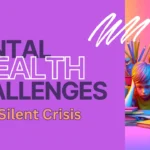Introduction to Meme Culture to Mainstream
Gen Z, born between the late 1990s and early 2010s, has undeniably transformed the digital landscape, especially in terms of internet culture. One of the most notable impacts has been the rise of meme culture, which Gen Z has perfected and spread across social media platforms, elevating it from an online subculture to mainstream phenomenon. Lets move forward to understand how they are transforming From Meme Culture to Mainstream
The Birth of Meme Culture
What started as simple image-based jokes on platforms like 4chan and Reddit has grown into a powerful form of communication and self-expression. Gen Z’s use of memes is not just about humor—memes have become a way to discuss social issues, political movements, and personal experiences. The “relatable” aspect of memes has made them highly viral, creating a new kind of social currency that is based on being in-the-know and instantly sharing common experiences.
From Twitter to TikTok: Social Media as a Stage for Change
Gen Z’s heavy presence on platforms like TikTok and Twitter has also driven cultural shifts. TikTok, in particular, has become the go-to space for viral content and trendsetting. Short-form videos, dances, and challenges dominate, with memes and viral videos now often leading global conversations. These platforms have democratized content creation, allowing anyone—no matter their background—to achieve viral fame.
Shifting Online Trends
Gen Z’s ability to rapidly adapt and shift online trends has created a fast-paced internet environment. What was trending a week ago may already be obsolete today. This sense of urgency and fluidity has reshaped how we consume content. While older generations may still struggle to grasp the rapid fire of these trends, Gen Z has seamlessly integrated them into everyday conversation, making it easier to embrace internet culture as part of the mainstream.
Impact on Brands and Marketing
Marketers have recognized this shift and are adapting to it by incorporating memes and internet humor into their campaigns. The younger audience, particularly Gen Z, is more likely to engage with brands that are relatable and authentic. As meme culture has infiltrated mainstream advertising, traditional advertising methods have had to evolve to keep pace with the ever-changing digital world.
Mental Health and Awareness
Beyond humor, Gen Z has also used the internet to bring attention to important issues such as mental health, body positivity, and social justice. Social media platforms are now spaces where conversations about mental health happen openly, and many influencers and content creators have openly shared their personal struggles to break stigmas.
The Future of Internet Culture
Gen Z has not just changed the way we use the internet but has also set the stage for what’s to come. Their online habits have paved the way for future generations to have an even more interactive and engaging digital experience. Meme culture, once seen as niche and comedic, has firmly established itself as a cornerstone of modern communication, forever altering the fabric of the internet.
Highlights – Meme Culture to Mainstream
Gen Z’s influence on internet culture and meme creation is undeniable, with a significant impact on both the digital space and social dynamics. Here are some compelling statistics and insights that highlight this transformation:
- Increased Social Media Usage: Gen Z spends an average of 3 hours and 19 minutes daily on social media, with 35% dedicating over 4 hours per day. This elevated usage is impacting how they engage with content, including meme culture, which has seen widespread adoption across platforms like Instagram, TikTok, and Reddit.
- Content Creation Leaders: Around 63% of Gen Z actively create and share content online, making them not just consumers but producers of internet culture. Video content, including memes and viral clips, is especially popular, with 54% of Gen Z engaged in creating videos.
- Humor as Coping: Gen Z’s affinity for dark humor and memes isn’t just for fun—it’s a coping mechanism for addressing anxiety, disillusionment, and global uncertainties like climate change, political instability, and mental health struggles. The use of humor allows Gen Z to process complex societal issues, making them more relatable and easier to discuss.
- Gen Z and Mental Health: This generation is facing significant mental health challenges, with studies showing high rates of anxiety, depression, and loneliness. Humor, particularly through memes, has become a common tool to deal with these issues, reflecting the generation’s resilience and approach to adversity.
- Impact on Marketing and Consumer Habits: Social media and memes are now shaping purchasing decisions for Gen Z. With 87% saying social media influences their buying choices, brands are increasingly using meme culture and viral content to engage with this audience.
Gen Z’s memes, humor, and digital interactions are not just changing the way the internet functions—they are reshaping social norms and the future of digital content, blending creativity, entertainment, and activism in unique ways. As they continue to lead the charge in internet culture, their memes are evolving from mere jokes to vital forms of communication, marking a shift that may well define the internet for years to come.












